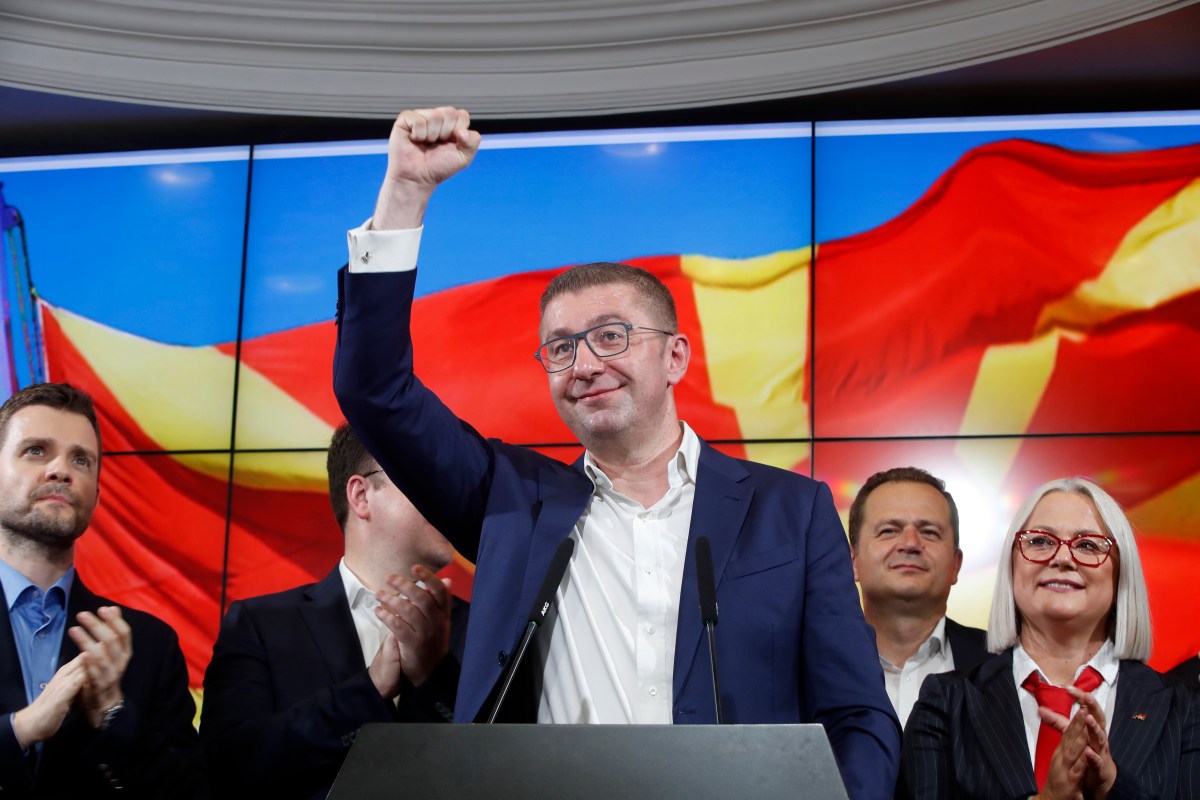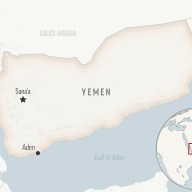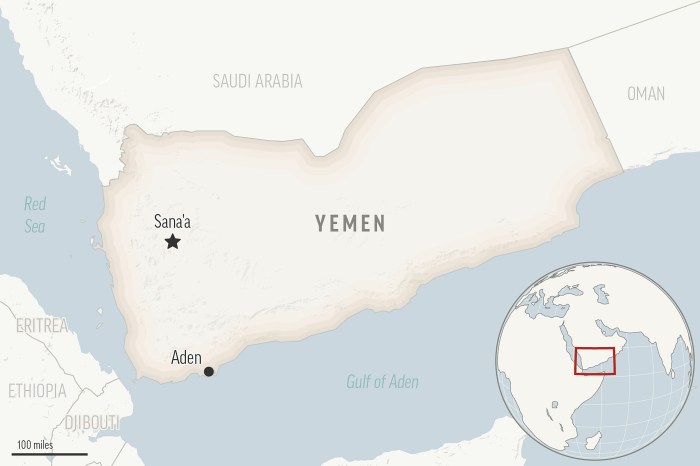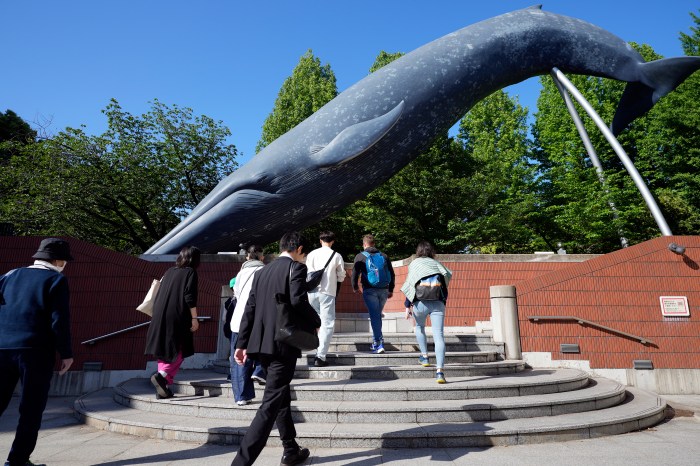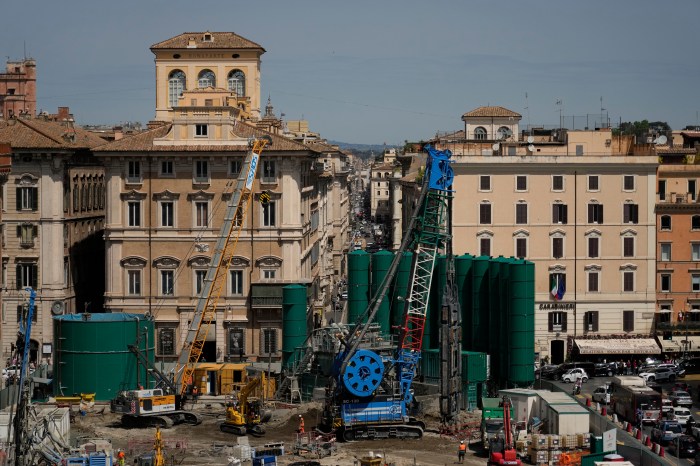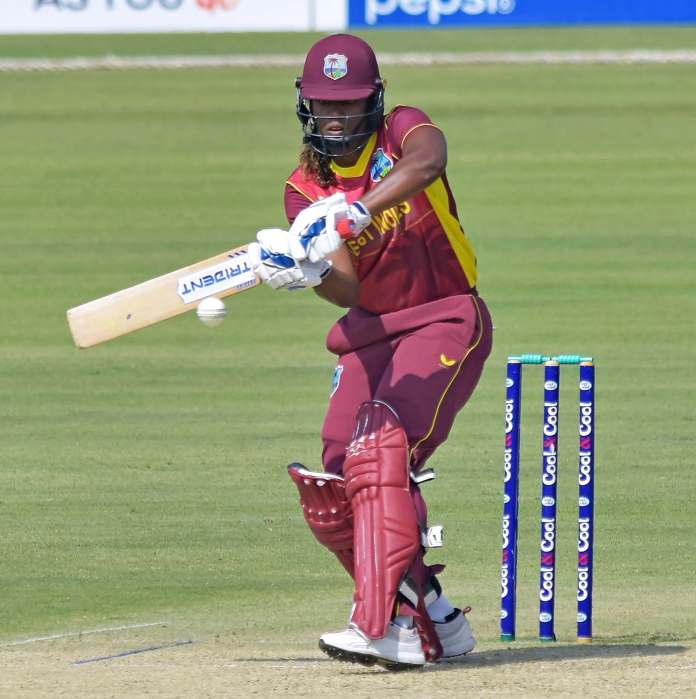SKOPJE, North Macedonia (AP) — The head of a center-right 22-party coalition that emerged victorious in North Macedonia’s parliamentary election has fallen just short of gaining a parliamentary majority, leaving it reliant on entering a partnership with another party to form a government.
The “Your Macedonia” coalition, led by the head of the VMRO-DPMNE party, Hristijan Mickoski, won just over 43% of the votes in Wednesday’s election, giving it 58 of the country’s 120 parliamentary seats, three fewer than an outright majority, official results showed. Mickoski was expected to begin seeking a governing partner as early as Thursday.
“Tonight we have a reason to celebrate, but starting from tomorrow, we have a job to do,” Mickoski, 46, said late Wednesday. “I’ll hold the first meeting in the morning where we will determine the principles for the composition of a government from which we will not deviate.”
The parliamentary vote was held simultaneously with a runoff for the country’s presidential election, which saw the victory of North Macedonia’s first female president in a double win for the center-right backed opposition. Law professor Gordana Siljanovska-Davkova, 70, was declared the winner after receiving nearly 65% support with more than two-thirds of the vote counted, trouncing incumbent Stevo Pendarovski, backed by the Social Democrats, who conceded after garnering just over 29%.
In the parliamentary election, the Social Democrat-led coalition that has been in power for the last seven years struggled to hold on to second place with just 15.3% of the vote, giving it 18 seats in parliament -– one less than a group of parties led by ethnic Albanian minority party DUI, which won 19 seats.
Another opposition ethnic Albanian coalition, led by the VLEN, or Worth party, earned 13 seats, while the smaller Levitsa, or Left, and the movement For our Macedonia, known by its acronym ZNAM, each won six seats.
The conservatives made sweeping gains on popular discontent over issues of corruption, the country’s slow path toward European Union membership and its flat economic growth. During his campaign, Mickoski accused the outgoing government of ineptitude and of making humiliating compromises in trying to settle disputes with North Macedonia’s neighbors.
In his victory speech, Mickoski told supporters his government would make fighting corruption its priority.
“Every last person who committed a crime and committed corruption will be held accountable,” he said. “The people have taught the government its most important lesson and saved their country. … We have regained hope and tonight we have reason to celebrate.”
Hopes are high that the country’s new leadership will oversee North Macedonia’s long-anticipated entry into the EU. The small Balkan country has orbited the 27-nation bloc for nearly two decades with little to show for its efforts.
Although both opposing political sides support EU integration, they have differed on how to deal with neighboring Bulgaria’s demands that North Macedonia enshrine in its constitution the recognition of a Bulgarian ethnic minority.
While Social Democrats and ethnic Albanian parties agree to the constitutional changes, VMRO-DPMNE says it will not accept what it calls “Bulgaria’s diktat,” hinting it might seek to renegotiate the conditions on membership talks and seek guaranties from the EU that it will be Bulgaria’s last demand for lifting its veto on North Macedonia joining the EU.
Outgoing President Kovachevski warned that the country’s path toward the EU must not be deviated from.
“If we miss that chance, we could lose another decade, maybe even another generation,” he said, adding that could lead to falling living standards and increased ethnic tensions, and could “expose us to a security risk that none of us can understand how big it could be.”
Once the State Electoral Commission announces the final official results, the new president will be inaugurated by May 12, when the mandate for the current president officially ends. Siljanovska Davkova will make a statement before the lawmakers of the old parliament, and the new parliament must be constituted within 20 days.
It is the president who must give the formal mandate to the winner of the parliamentary election to form a government. This step takes place within 10 days of the new parliament being constituted, but negotiations between party leaders usually begin informally days earlier, right after the election.

